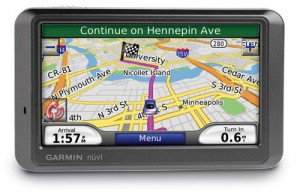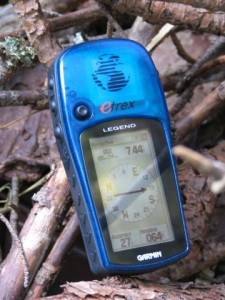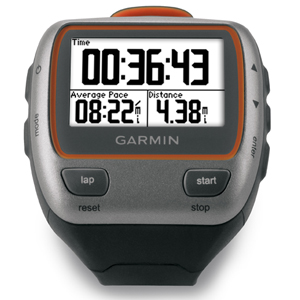There is a sea of choices when it comes to GPS tracking devices today. You have a wide range of tracking manufacturers to choose from as well as a great many providers to sift through in your search for the tracking system that is best going to fit your particular needs. This task can seem a little daunting to someone just starting out in the world of GPS powered tracking, but if you let a few controlling principles guide you in your decisions then you should be able to easily navigate this sea until you have found port with GPS tracking system that works out best for you and your needs.
One of the main problems that people suffer from is an abundance of choice. While we think we like to keep our options open, the human mind can only filter and process so much information at any given time. If we simply stare at the 20-50 different GPS tracking devices that exist on the market then we are going to get nowhere fast. We will despair of finding a device and either choose a suboptimal tracker or not even make a purchase all together. I hope that was follows is a series of useful filters through which you can sift through the many choices available to you in your quest to evaluate the GPS tracking device that is best for you:
Determine if you need real time tracking or if you are content with data logging. This is mainly going to depend on the type of tracking that you want your device to do for you and will generally be a very person specific question. Some applications just do better with a real time tracker while others do just fine with a data logger. I like to think of it this way, if you need to know information as it happens then you will want a real time tracking device. If you are fine with figuring out where something has been after the fact, then a data logger is going to meet your needs just fine. Fortunately, there are personal GPS tracking devices that fall into both camps. It is also often the case that a tracking provider will provide both data logging and real time devices for their customers to purchase.
Choose a tracking device with the appropriate battery life. After deciding which style of tracker you are purchasing it is time to begin considering the battery life of your device. As I am sure we all know, most electronic devices are limited by their power supply or battery life. If they have week batteries then it doesn’t matter how great the device is, we simply can’t use it for that long or else the battery will run out. If we had to speak in general terms, most data loggers will have a longer battery life than a real time GPS tracking device. This is mainly because real time trackers have to communicate their information via a cell phone modem which is an extra drain on the device’s power supply. Some real time trackers overcome this problem by hardwiring the device to a power supply. This is particularly common in GPS vehicle tracking devices that are used in commercial applications. While this is also possible for other uses, like tracking a teen’s car or possibly even tracking, it is most often used for fleet vehicle tracking.
Choose a a GPS tracking device that is going to be the appropriate size for your proposed tracking purpose. If you are planning on doing any sort of covert GPS vehicle tracking then you really need to think about the size of the device. Something that is small and easily attached to or hidden under your target is a top priority since covert tracking only really works as long as it goes undetected. Once the target has found the device they will be able to remove it or change their behavior, resulting in skewed results. Generally speaking, you are going to want a portable GPS tracking device. This will allow you to move it various locations as the need arises and even track multiple targets over a short period of time. If the device is not portable then will lose some of the tracking flexibility that you might be looking for.
Find out if the GPS tracking software run by your company is going to meet your needs. As you might suspect, there is a host of different GPS tracking software packages that really cater to different tracking functions. For example, a child GPS tracking device is not going to have the same user interface or software package as a GPS car tracking device. They are used for completely different purposes by different types of people. They most certainly gather their information the same way (via GPS satellites and a process called trilateration), but what they do with this information and how they present it to their customers can sometimes be radically different.
The reasons for this are pretty obvious. The information a parent might want to gather from their child GPS tracking device is going to center around the location of their child. Have they stayed within their specified GeoFence? Where were they at 3:30 PM today when they were supposed to be home from school? Did they get to soccer practice on time? These are the types of questions that a parent is going to want to know and this is the information that GPS trackign software geared for child tracking devices is going to be able to provide.
Similarly, GPS car tracking devices have their own set of metrics that need to be reported and they will have software that provides that to end users. Things like vehicle speed, lane position, and past locations are all wanted by car tracking users. This is obviously different information than what the child tracking folks want and will therefore result in a different type of tracking software.
Even among different providers of the same type of tracking service you will get different GPS tracking software packages and features. Be sure to check out screen shots of the tracking system and see if they have a live demo for you to explore. There is nothing more important than getting a hands on feel for how the software will actually work and how you will interact with the information that your device will communicate.
Finally, consider all the costs involved with your new purchase. Real time tracking devices generally cost more up front and have a reoccurring subscription that you have to maintain if you are going to continue to use the device. This subscription generally costs just as much as a cell phone plan (around $40) if you want to have true real time tracking. Data loggers, on the other hand, do not really have any reoccurring costs and they generally are significantly cheaper than real time trackers. While they don’t have a lot of the same cool features that a real time GPS tracking device might have, they are just as accurate and just as useful for certain tracking applications.
In the final analysis, choosing the right GPS tracking device for you is going to be very situational. What might work for one person is not going to work for another. But if you follow these simple steps and use them as a framework through which to evaluate your GPS tracking purchase you should come out on the other side with a useful tracking device that fits your particular need for that particular situation.

 Geocaching is a sport, or a hobby depending on who you talk to, that is very similar to a treasure hunt. How it works is that a person hides an object somewhere in the world. They then post the GPS coordinates of where they hid the item on a website like
Geocaching is a sport, or a hobby depending on who you talk to, that is very similar to a treasure hunt. How it works is that a person hides an object somewhere in the world. They then post the GPS coordinates of where they hid the item on a website like  Fitness GPS are meant to be portable by their very nature. What good is a fitness GPS going to be if you can’t take it out with you and a run or on a bike ride? Not very much. As a result manufacturers make these devices small and highly mobile. Some of the best fitness GPS equipment comes in the form of a wrist watch, the Garmin Forerunner series. There are also GPS devices for cyclists, kayakers, and swimmers – giving them all a very technical look at their workouts.
Fitness GPS are meant to be portable by their very nature. What good is a fitness GPS going to be if you can’t take it out with you and a run or on a bike ride? Not very much. As a result manufacturers make these devices small and highly mobile. Some of the best fitness GPS equipment comes in the form of a wrist watch, the Garmin Forerunner series. There are also GPS devices for cyclists, kayakers, and swimmers – giving them all a very technical look at their workouts.